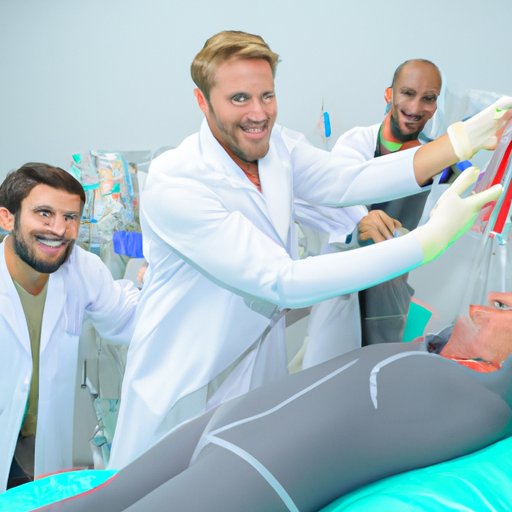Introduction
Donating your body to science is an altruistic act that can benefit many people, even after you’re gone. Donating your body to science means you are providing medical professionals the opportunity to use your body for research, education, and training purposes. It’s a way to give back to society and help advance medical knowledge.
The benefits of donating your body to science are vast. Medical researchers can gain invaluable insight into diseases and treatments from studying donated bodies. Medical students can learn more about the human body and its functions. And in some cases, families are able to receive closure, knowing that their loved one’s body was used to save or improve other lives.

Process of Donating Body to Science
If you decide to donate your body to science, there are several steps you must take to ensure your wishes are fulfilled. The first step is identifying an organization where you would like to donate your body. There are many organizations that accept body donations, including universities, medical schools, and research facilities.
Once you have identified an organization, you will need to fill out paperwork. This paperwork typically includes a consent form, which states that you agree to donate your body to the organization. You may also be asked to provide information about your medical history and any allergies you have.
In addition to paperwork, you may need to meet certain health requirements before donating your body. Most organizations require that donors be free from communicable diseases and have no history of chronic illness. Additionally, some organizations may require that donors be of a certain age.
Legal Considerations
It is important to note that each state has its own laws and regulations regarding body donation. Before donating your body, it is important to understand these laws and make sure that you are in compliance with them. Additionally, it is important to read and fully understand the consent forms you are signing. Make sure you are aware of what will happen to your body after you die.
It is also important to remember that you may need to specify who will be responsible for transporting your body to the organization. This person should be someone you trust to carry out your wishes.
Family Notification Process
When donating your body to science, it is important to inform your family of your decision. This can be done by including a clause in your will or by having a conversation with your closest family members. It is important to let your family know that you have chosen to donate your body so they can make arrangements for transporting your body to the organization.
You may also want to consider setting aside funds to cover the cost of transporting your body. Depending on your location, this could be a significant expense.
Stories of People Who Have Donated Their Bodies to Science
Many people have chosen to donate their bodies to science, and their stories are inspiring. One example is the story of Jane Doe, a woman who donated her body to a university medical school. After she passed away, her body was used to teach medical students about the human body and its functions. Her donation helped countless medical students gain valuable knowledge and experience.
Another example is the story of John Smith, a man who donated his body to a research facility. His body was used to study the effects of a new drug on the human body. His donation helped researchers gain valuable insight into the drug’s efficacy and side effects.
These stories demonstrate the potential benefits of donating your body to science. Not only do you have the satisfaction of knowing that your body is helping to advance medical knowledge, but you can also rest assured that your family will receive closure knowing that you were able to help others through your donation.
Conclusion
Donating your body to science is an altruistic act that can benefit many people, even after you’re gone. By understanding the process, legal considerations, and potential benefits of donating your body for medical research, you can make an informed decision about whether donating your body is right for you. Whether you choose to donate your body or not, your decision is ultimately up to you.
For those who do choose to donate their bodies to science, the rewards can be immense. Not only will you be helping to advance medical knowledge, but your family can also find peace knowing that you were able to help others in your final act of generosity.
(Note: Is this article not meeting your expectations? Do you have knowledge or insights to share? Unlock new opportunities and expand your reach by joining our authors team. Click Registration to join us and share your expertise with our readers.)
